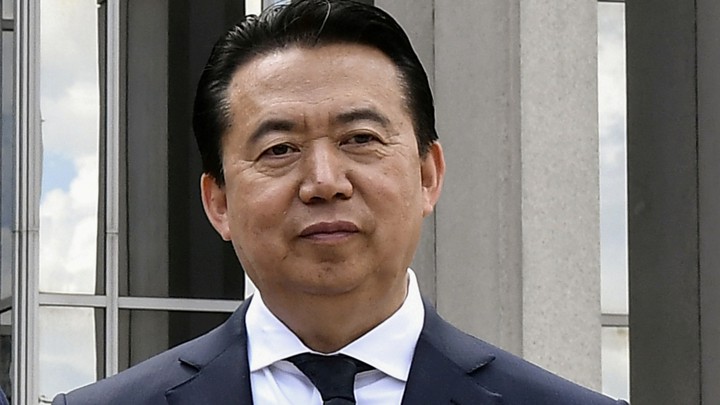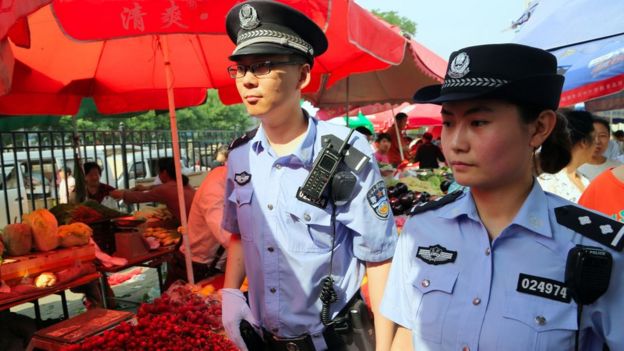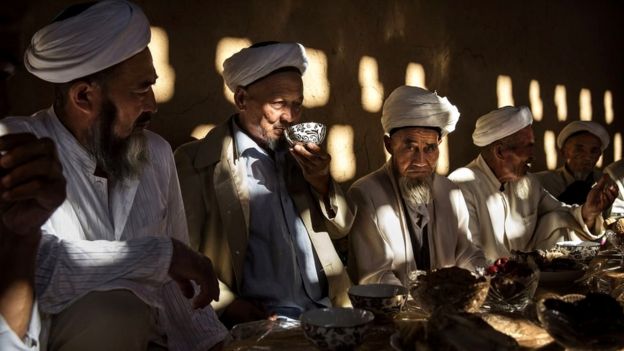By BETHANY ALLEN-EBRAHIMIAN
 Meng Hongwei
Meng Hongwei
China has spent years trying to gain an equal footing in international institutions originally set up by the West.
Those efforts have seen gradual success, as Chinese nationals have come to occupy leading positions on United Nations committees, multilateral development banks, international courts, and many other organizations.
So when Meng Hongwei, a high-ranking Chinese Communist Party member who was chosen to serve as the president of Interpol in 2016, disappeared last month while visiting China, and was revealed two weeks later to have been detained by Chinese authorities, it seemed like an unforced error.
So when Meng Hongwei, a high-ranking Chinese Communist Party member who was chosen to serve as the president of Interpol in 2016, disappeared last month while visiting China, and was revealed two weeks later to have been detained by Chinese authorities, it seemed like an unforced error.
Interpol is an important international organization tasked with facilitating cooperation between police forces in countries around the world.
But even so, party disciplinary authorities were treating Meng first and foremost as a party member who had strayed from the straight and narrow, rather than as the internationally recognized top official of a major multilateral organization who deserves due process.
Meng’s detention shows that under Beijing’s increasingly confident global authoritarianism, China’s participation in and even its leadership of international institutions will be openly subordinate to the diktat of the Communist Party.
Meng’s detention shows that under Beijing’s increasingly confident global authoritarianism, China’s participation in and even its leadership of international institutions will be openly subordinate to the diktat of the Communist Party.
This stands in stark contrast to the preceding eras under previous Presidents Hu Jintao and Jiang Zemin, when China paid lip service to following international law and to becoming a conforming member of the current international system.
The circumstances under which Meng disappeared highlight the authority the party still wields over Meng, even while he served as the head of a supposedly politically neutral institution.
The circumstances under which Meng disappeared highlight the authority the party still wields over Meng, even while he served as the head of a supposedly politically neutral institution.
His disappearance first became known when his wife reported his absence to police in France, where the couple lives, and the French police launched an investigation.
His wife had begun to worry for his safety when she received a knife emoji in a text message from her husband, taking it as a coded warning that all was not well on his trip home.
On October 7, almost two weeks after Meng went missing, Chinese authorities announced that they were charging Meng with bribery.
On October 7, almost two weeks after Meng went missing, Chinese authorities announced that they were charging Meng with bribery.
After coming to power in 2012, Chinese dictator Xi Jinping launched a sweeping anti-corruption crackdown that has felled thousands of mid-level party cadres and numerous high-ranking officials.
But experts say the anti-corruption campaign is used as cover for political purges intended to strengthen Xi’s grip on power.
But experts say the anti-corruption campaign is used as cover for political purges intended to strengthen Xi’s grip on power.
There are hints of a political element in Meng’s detention; when announcing the charges against Meng, Chinese authorities also stressed the need for “absolute loyal political character.”
Meng is now being held in a custody system notorious for torture, abuse, and denial of access to lawyers or a fair trial.
It is certainly normal for any country to prosecute government officials for corruption; it is not normal to detain them without notice or charge, then thrust them into a system without fair representation or transparency.
That raises serious questions about the fitness of any member of the Chinese Communist Party to serve in a leadership position in international organizations.
That raises serious questions about the fitness of any member of the Chinese Communist Party to serve in a leadership position in international organizations.
Meng’s detention is a clear sign that any party members abroad, no matter how high their profile or how important political neutrality is to their position, are still subject to the will and demands of the party—a party that’s willing to punish them at any cost if they stray.
This is far truer under Xi than under his recent predecessors because one of Xi’s top goals has been to revitalize the once-moribund party, reestablish it as the main guiding force in China, and double down on party discipline.
It’s clear that Meng was the party’s man at Interpol.
It’s clear that Meng was the party’s man at Interpol.
During his tenure as Interpol president, Meng simultaneously served as a vice minister in China’s public-security bureau, the country’s chief law-enforcement institution.
It’s unlikely he could have risen to such a high position without demonstrating years of loyalty to the party.
And the public-security bureau is behind illegal detentions and numerous other injustices visited upon a populace with few civil-rights protections.
That means Meng spent his career climbing the ladder within a ruthless organization.
Thus, Meng’s election in 2017 to the position of Interpol president, though a largely ceremonial post, raised concerns that China would use Meng’s position to pursue political dissidents through the issuance of Interpol red notices.
Thus, Meng’s election in 2017 to the position of Interpol president, though a largely ceremonial post, raised concerns that China would use Meng’s position to pursue political dissidents through the issuance of Interpol red notices.
A red notice is roughly equivalent to an international arrest warrant requested by an individual government, and Interpol approves requests based not on an assessment of the target’s guilt but rather on whether the requesting government followed the appropriate laws and regulations in making the request.
This makes the red-notice system notoriously easy to abuse; Russia, China, Turkey, Venezuela, and some Central Asian nations are known to request politically motivated red notices targeting political foes and journalists.
Interpol member nations are not required to detain or extradite those with a red notice against them, though many do.
And indeed, shortly after Meng became president, Interpol issued a red notice for Guo Wengui, an exiled Chinese billionaire who had recently threatened to release compromising information on leading members of the Communist Party.
But not everything went so smoothly for China, or for Meng.
And indeed, shortly after Meng became president, Interpol issued a red notice for Guo Wengui, an exiled Chinese billionaire who had recently threatened to release compromising information on leading members of the Communist Party.
But not everything went so smoothly for China, or for Meng.
In February, Interpol rescinded a red notice, originally issued at China’s request, for Dolkun Isa, the Europe-based president of World Uyghur Congress, a group that advocates for a beleaguered Chinese ethnic minority.
Beijing claims that Isa is a terrorist, and China has frequently requested that European governments arrest and deport him.
Some observers noted that about six weeks after Isa’s red notice was revoked, Meng was removed from his post as a member of the public-security bureau’s party committee, the party organ embedded inside the bureau to provide leadership and ideological guidance, leading to speculation that the party was unhappy with Meng for allowing Interpol to remove the notice.
“Look at East Turkestan,” wrote Bill Bishop, the author of the influential Sinocism newsletter, referring to the Chinese region where an estimated 1 million Muslims are being held without due process.
Some observers noted that about six weeks after Isa’s red notice was revoked, Meng was removed from his post as a member of the public-security bureau’s party committee, the party organ embedded inside the bureau to provide leadership and ideological guidance, leading to speculation that the party was unhappy with Meng for allowing Interpol to remove the notice.
“Look at East Turkestan,” wrote Bill Bishop, the author of the influential Sinocism newsletter, referring to the Chinese region where an estimated 1 million Muslims are being held without due process.
“Does Beijing care if there is fleeting concern over the fate of their Interpol appointee?”
These days, Beijing seems far less concerned about the opinion of the liberal West than it once was. Rather than continuing to try to hide the existence of its concentration camps in East Turkestan, Chinese officials are declaring them to be a true societal good.
These days, Beijing seems far less concerned about the opinion of the liberal West than it once was. Rather than continuing to try to hide the existence of its concentration camps in East Turkestan, Chinese officials are declaring them to be a true societal good.
In the contested South China Sea, China now rarely claims that it aims to uphold international law—instead, it emphasizes that no one has the right to criticize its island building and militarization there.
Might makes right, as it were.
At the same time, Beijing wields greater sway over international institutions than ever before.
At the same time, Beijing wields greater sway over international institutions than ever before.
That means stakeholders in the international system would do well to ask themselves what price they might pay if they offer leadership positions to Chinese Communist Party members.
It’s likely that as China promotes its authoritarian system around the world, one will increasingly see the party justify and even tout its realpolitik approach to international power.
A liberal world order built on human rights and rule of law will need to find an effective response—and soon.









